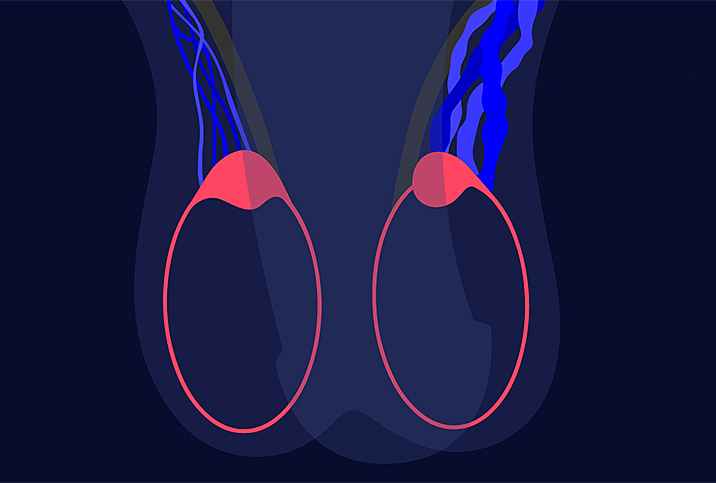Pain Is a Good Thing: Listen to It

Experiencing pain in your genitals is never pleasant, but when you do have pain down there, it's wise to pay attention to it so you can identify the possible cause and seek treatment if needed.
It's important to learn how penile pain is defined, what causes it and when you should make an appointment with your doctor.
What is penile pain?
Penile pain is any type of ache, irritation or discomfort you may feel on the inside or outside of your penis. Itching, burning, throbbing and open sores are symptoms that may accompany penile pain. It's important to note that penile pain is different from sudden, intense pain in your scrotum, which may be a sign of testicular torsion, a medical emergency that would send you to the emergency room right away.
Penile pain can affect any part of your penis, including its head, base, shaft or foreskin. It may occur at any time, including during periods of inactivity. This type of genital pain can affect men of any age or background and usually occurs because of an injury or a disease.
Penile pain may be sudden and severe or develop slowly and worsen over time. Regardless of how quickly the pain sets in or the other symptoms you may experience, it's important to monitor it and know when it's time to see a doctor so you can prevent your condition from progressing into something more serious.
What causes penile pain?
You may be experiencing penile pain for many different reasons. If possible, try to recall your recent activities to determine what may have led to your pain. In some instances, however, your penile pain may be caused by an underlying medical condition and not by specific behavior, injury or accident.
Potential causes of penile pain include:
- Priapism, a long-lasting erection that doesn't go away
- Peyronie's disease, which causes curvature in erections
- Penile fracture, caused by trauma to an erect penis
- Sexually transmitted infections (STIs), specifically genital herpes, syphilis, chlamydia and gonorrhea
- Ingrown hair or infected hair follicles
- Bladder stones
- Urinary tract infection (UTI)
- Prostatitis, inflammation of the prostate gland
- Balanitis, an infection of the foreskin and head of the penis in uncircumcised men
- An infected penile implant, which is a medical device that some men use to treat erectile dysfunction (ED).
- Reactive arthritis, which is pain and swelling triggered by an infection in the genitals, urethra or intestines
- Injury from rough sexual activity or a blow to the groin while playing sports or during some other activity
- Skin disorders, including lichen sclerosus
- Blood clot in the penis
- Penile cancer
When should you visit a doctor for penile pain?
Contact your doctor right away if you experience any pain in your penis and aren't sure why—especially if your pain occurs during an erection or affects your ability to urinate. You should also make it a priority to contact your doctor if your pain is accompanied by redness, swelling or discharge from the penis or an open sore.
Your doctor can perform a physical examination, review your medical history and ask you a series of questions to identify the root cause of your penile pain. In the event you do have a medical condition, having it treated early can prevent it from progressing and causing problems with your sexual function.
Treatment for penile pain will depend on the cause. For instance, medications and antibiotics may be used to treat a UTI or STI, while surgery may be used to treat cancer or plaques in Peyronie's disease.
In any case, it never hurts to speak with your doctor about potential causes of penile pain and ways to prevent it from happening. Using condoms if you are not in a mutually exclusive sexual relationship, avoiding rough sex and cleaning under your foreskin are some of the many steps you can take to keep your genitals healthy and prevent pain.


















